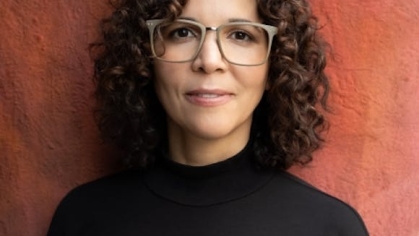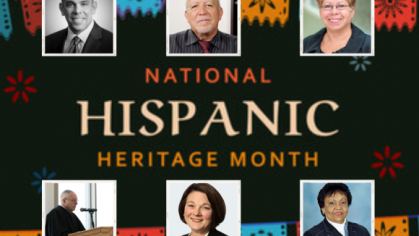Judges told Rutgers Law students to be true to themselves, find work that energizes them and keep their reputations as ethical people, during a judicial panel on careers sponsored by the Student Bar Association at Rutgers Law School in Newark.
More than a dozen judges from New Jersey attended the event in early February that ended with a reception in the law school’s lower atrium.
“The starting point of any career has to start with you and what you believe you should be doing,” said Chief Justice Stuart Rabner, who gave the opening remarks. “Step back just a little bit and ask yourself what you hope to do as a lawyer. Where would you like to be 10, 20 years from now and work backward from there.”
Rabner encouraged them to get as many experiences as possible before focusing on a single area of law, including working for judges, public agencies and private law firms. He warned them not to bow to peer pressure from other students who are focusing on a particular area of law and said students need to think about whether they truly want to work for a judge and would enjoy the work before applying for clerkships
The judges who spoke on the panel said they didn’t start out in law school knowing they would end up as judges, but took advantages of opportunities that came their way. “This was never my plan,” admitted Superior Court Judge Sallyanne Floria, who spent many years in private practice but currently serves as the assignment judge for the Essex Vicinage.
U.S. Third Circuit Court Judge Patty Shwartz said students should pick a career that energizes them and makes them feel good about the work they are doing. “Our best commodity is our work,” she said. Shwartz told students to stay trustworthy and professionally courteous, so that they are seen as good colleagues and are respected as adversaries.
The judges also gave students advice on how to get experience as young lawyers. Floria said when she was first building her private practice, she spoke at events, volunteered on legal committees and did pro bono work for non-profit organizations near her home. “Have yourself out there so people will see you’re part of the community,” she said.
Superior Court Judge Thomas Callahan said he volunteered to be a municipal public defender, which led to a paid job as a public defender and ultimately a job with the prosecutor’s office. He now works in the Family Division of Superior Court in Essex County.
Students also got some practical pointers on how to set themselves apart from other applicants for internships and clerkships. Judge Callahan said he notices when students sit through court proceedings to learn more about what happens in a courtroom and when they follow up interviews with thank-you notes. Judge Floria said she expects students to know what her current assignment is and expects them to have done some research before an interview.
Rabner closed the panel urging students to protect their professional reputations, especially by being mindful of what they share on social media. He gave this advice, “You want to be thought of as somebody who is able and trustworthy and has a reputation as somebody who gets things done for their clients.”


